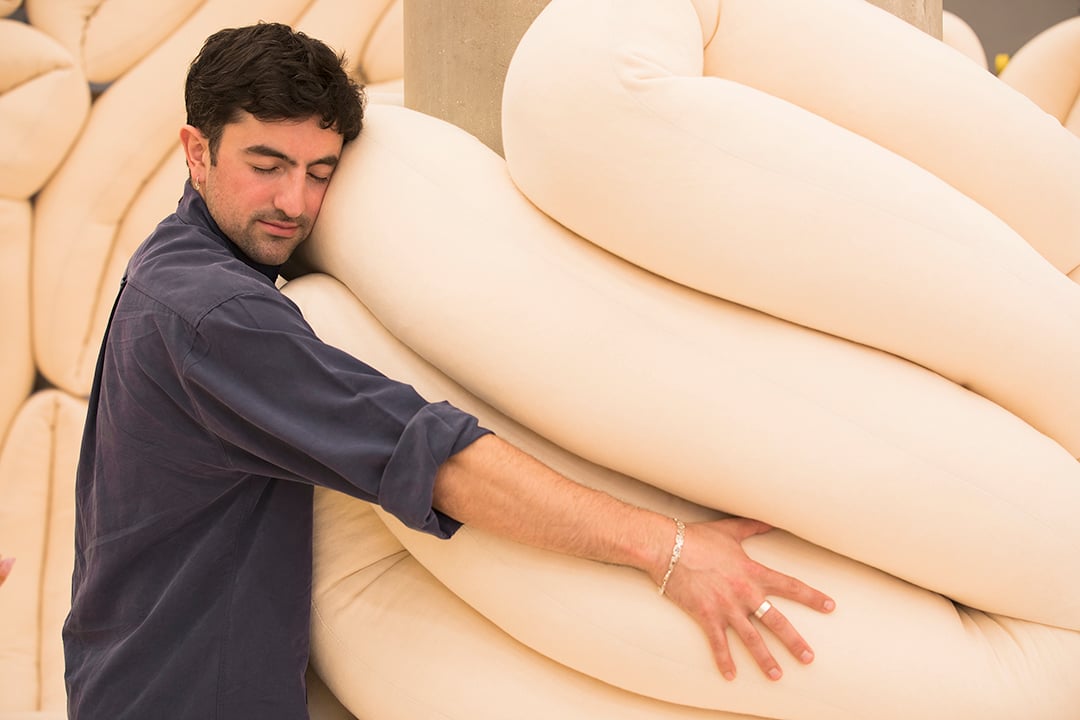
A sedative tingling feeling that slowly forms on the scalp, prickling as it descends its way over the entire body before finally becoming an immersive physical experience that collapses the acoustic and visual environments into an all-encompassing sensorial climax.
No, this isn’t an orgasm, it’s a new exhibition looking at those who experience ASMR, or Autonomous Sensory Meridian Response.
Tobias Bradford, That Feeling / Immeasurable Thirst (2021). Ed Reeve for Design Museum.
“Weird Sensation Feels Good: The World of ASMR,” which features artists as diverse as Björk and Bob Ross, looks at how this phenomenon, experienced by millions of people online, including through a number of wildly popular TikTok accounts, can be turned into a physical, immersive exhibition of art and design.
Now open at the Design Museum in London, the exhibition features a cornucopia of sublime experiences designed to mimic the multi-sensory world of ASMR.
Bob Ross, Morning Mist (1985). Ed Reeve for Design Museum.
From a 1988 clip of Björk eloquently describing how television works, to a wall-mounted installation of a mechanical tongue laced with synthetic saliva by Tobias Bradford, to the idyllic videos of the late Bob Ross calmly discussing the finer points of painting, the exhibition begs viewers to take a closer look at intimacy.
As viewers enter the expansive, womb-like exhibition, their first encounter is with a glossary of terms designed to educate the uninitiated.
The wall text defines terms like ASMRtist (someone who creates works of ASMR), frisson (the sensation of “aesthetic chills”), and misophonia (denoting one who is emotionally affected by common sounds like breathing or chewing), before finally moving into a tactile environment that features everything from poetry to installation to industrial design and furniture.
In total, it features over a dozen artists whose works have been assembled by curator James Taylor-Foster of ArkDes, the Swedish Centre for Architecture and Design, who became interested in making the exhibition after noticing the immense cultural impact the movement had online.
“Ultimately, ASMR is a community,” Taylor-Foster told British Vogue. “[It’s a] cultural field, site of imagination, and a form of design in a broader sense. It’s risen out of a world of speed and anxiety, proving slowness is important and provides an intimacy that’s needed.”